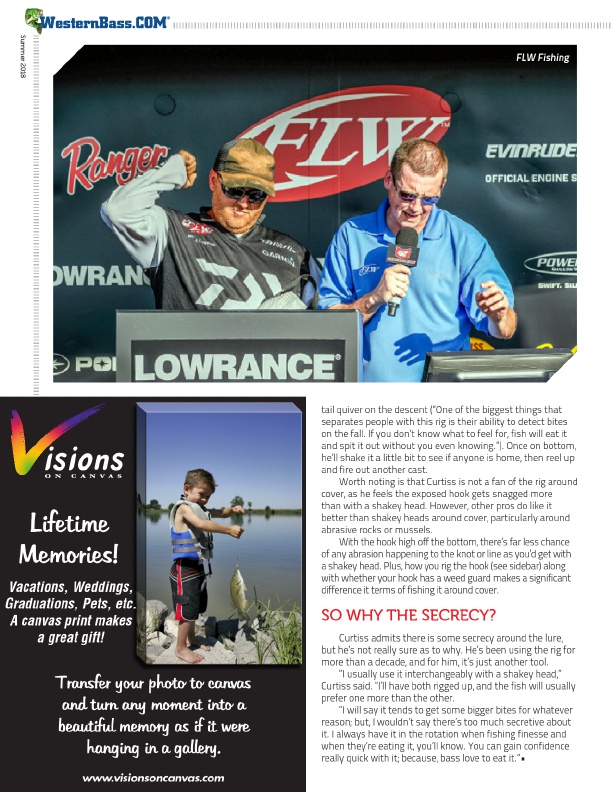
Summer 2018
®
FLW Fishing
Lifetime Memories!
Vacations, Weddings, Graduations, Pets, etc. A canvas print makes
a great gift!
Transfer your photo to canvas
and turn any moment into a
beautiful memory as if it were
hanging in a gallery.
page
48 www.visionsoncanvas.com
tail quiver on the descent (“One of the biggest things that separates people with this rig is their ability to detect bites on the fall. If you don’t know what to feel for, fish will eat it and spit it out without you even knowing.”). Once on bottom, he’ll shake it a little bit to see if anyone is home, then reel up and fire out another cast.
Worth noting is that Curtiss is not a fan of the rig around cover, as he feels the exposed hook gets snagged more than with a shakey head. However, other pros do like it better than shakey heads around cover, particularly around abrasive rocks or mussels.
With the hook high off the bottom, there’s far less chance of any abrasion happening to the knot or line as you’d get with a shakey head. Plus, how you rig the hook (see sidebar) along with whether your hook has a weed guard makes a significant difference it terms of fishing it around cover.
SO WHY THE SECRECY?
Curtiss admits there is some secrecy around the lure, but he’s not really sure as to why. He’s been using the rig for more than a decade, and for him, it’s just another tool.
“I usually use it interchangeably with a shakey head,” Curtiss said. “I’ll have both rigged up, and the fish will usually prefer one more than the other.
“I will say it tends to get some bigger bites for whatever reason; but, I wouldn’t say there’s too much secretive about it. I always have it in the rotation when fishing finesse and when they’re eating it, you’ll know. You can gain confidence really quick with it; because, bass love to eat it.”•
https://visionsoncanvas.com/